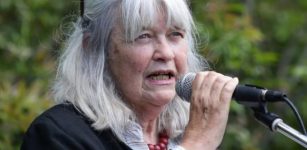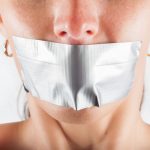Free Speech and Exposing Corruption: An Interview with Wendy Bacon

Wendy Bacon was just 23-years old when sentenced to eight days in prison and sent to Silverwater Remand and Reception Centre for her actions following the publication of a poem. Although she was later released, Wendy’s case became a defining moment for free speech in Australia.
The year was 1970, and as a newly elected editor of the UNSW student paper, Tharunka, Wendy was right in the thick of it: “Censorship was a really big issue from the 60s onwards, there was a really repressive regime in Australia” she told Sydney Criminal Lawyers®.
By that time, the list of books banned under the country’s strict anti-obscenity laws had grown to include the works of D.H. Lawrence, Philip Roth, Ernest Hemingway and many others.
Anything that contained sexual references was outlawed. As author Frank Moorhouse’s would write years later: “If Martians had arrived in Australia before 1972 and read our literature, they would not have had any clue about how human beings reproduced.”
It was during this time that Wendy, along with her fellow editors, published a poem called “C— is a Christian Word”, the work that would ultimately lead to her criminal conviction.
“When we took on the editorship of Tharunka we weren’t planning to have a great big campaign against censorship, but on the other hand we were determined to resist self censorship”, Wendy recalls.
“There was actually a broad campaign against censorship during those years, people were picketing theatres, people were having festivals of banned works, people were beginning to take direct action against censorship – there was the feeling that people just wanted to break through.”
The poem caused scandal, and Wendy along with her co-editors were arrested and charged under the Obscene Publications Act. During her hearing, she and other students protested by dressing as nuns inside the courtroom, with lines from the poem written across their chests.
Although the Tharunka editors were eventually cleared, Wendy was sentenced to eight days in prison for wearing the statement inside court. The experience would have a profound impact on her.
“I was a radical student, but I also came from quite a middle-class background. Though I certainly cared about poverty, I had no real experience”, she remembers.
“A lot of the other women were prostitutes, and they told me that they paid the police regularly, every now and then when they didn’t they would get a fine and go out to prison for a week, and then they would go back out onto the streets and keep paying. I realised that Vice Squad that they were paying were the exact same one that were kicking down my door in Edgecliff to issue a summons. That had a big impact on me, I realised that so much injustice was happening.”
Following her time in prison, Wendy, along with a university colleague, started the support group ‘Women Behind Bars’, campaigning for the rights of women inmates and justice for those unfairly convicted.
“There was a women called Violet Roberts who had ended up with a life sentence for murdering an extremely brutal husband. We conducted a campaign of civil disobedience, camping outside Corrective Services for an entire winter, in the end the Labor government granted her mercy and released her from prison.”
Women Behind Bars was started at a time of broader agitation by inmates and campaigners, notably the late Labor MP George Peterson, who fought for reform of the NSW Prison system.
“In Bathurst prison, at that time, there was a routine bashing of about 200 prisoners. Draft resisters and others went to prison and made contacts with other prisoners that were getting to be a bit more radical, there were a lot of prisoner uprisings all over the world at that stage, and the prisoners movement came out of that.”
The reform movement had its first victory in 1978, with the government announcing Nagle Royal Commission into the NSW prison system. The Commission exposed the extent of violence committed against inmates, and led to an improvement of prison conditions, including access to contact visits and phone calls.
The Tharunka case would go on to impact Wendy’s life in many other ways. In 1981, it was referenced by the Supreme Court who rejected Wendy’s application to join the NSW Bar, declaring her an unfit person to practise law.
The rejection represented a crossroads in Wendy’s life. Although she had completed her law degree, the decision forced her down another path, and she dove back into journalism. While working at 60 Minutes, Wendy’s experiences with the legal system led her to investigate the use of verbals and alleged confessions to police as evidence.
“You could be convicted on the basis of a confession alone, what the police were doing was actually just fabricating these records of interview and they would get people to sign the records of interview in exchange for heroin or in exchange for a bribe so bribery.”
“In the mid 80s I was working at an investigative paper called the National Times, and there was an editor there called Jeff Penberthy, and later Brian Toohey, who was campaigning for a Royal Commission into the police. Because people realised I had the experience to understand the issues and could be trusted not to give people up, I was approached by two young police that gave me the story about Roger Rogerson offering a bribe to another police officer not to give evidence. I did that story and get a flood of new information.”
The exposure of Rogerson and others, along with other investigations into underhanded tactics being used by police, eventually proved successful with the announcement of the Wood Royal Commission into policing.
Although Wendy acknowledges things have improved since then, she is still sceptical of the police.
“Almost certainly the police still lie, they can’t do it at the same level because of the reforms that came along like the video taping of evidence and restrictions on confession of evidence, but never the less police violence and police lies do continue.”
At 70, Wendy remains active as a journalist and campaigner. Just last month, she published a scathing investigation into the government’s conflicts-of-interest over the construction of WestConnex – the most recent in a series she’s written on the project. She’s active in the campaign against the highway’s construction, and was arrested during a recent protest.
Wendy Bacon will be appearing at THARUNKA to THOR – Journalism, Politics and Art 1970–1973 at 107 Projects, Redfern St, Redfern open now until April 23






